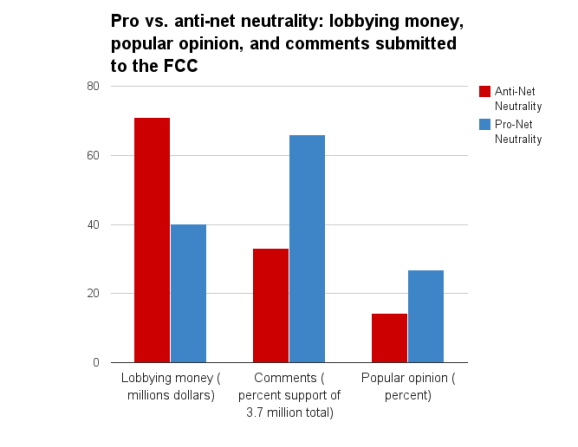By Isabelle Lounsberry
The net neutrality rule, enacted by former President Obama in 2015, was set in place in order to block the slowing of blocking or slowing internet traffic. It ensured that internet providers do not discriminate or charge differently by user, content, website, platform, application, type of attached equipment, or method of communication. The main policies highlighted in the bill include no blocking, no throttling, no paid prioritization, no unreasonable interference or unreasonable disadvantage to consumers or edge providers, and enhanced transparency.
Thursday, December 14th, with a 3-2 vote from the FCC, net neutrality regulations will no longer be enacted. The previous rules set in place managed the internet as a utility, such as a phone service. Now, however, it will have little to no federal government monetizations. They also commissioned the laws preventing internet providers from blocking websites or charging for certain content or higher speed service, as long as they disclose that they are doing so.
The new Trump-appointed FCC chairman argues that the repeal will benefit the economy and innovation, as some internet providers, 19 exactly, held off on new features because they, “Cannot afford to deal with a potential complaint and enforcement action.” He insists that this is proof enough that the regulations are holding society back.
The problem most people have with the new repeals is that it gives an easy pathway to a monopoly for larger companies because of the power they are given. Smaller, newer companies and service distributors will have a harder time getting a start as they will not have as much power, and therefore will not be able to become popular and make money, and will most likely not succeed as a business.
Many also believe that infringes on their freedom on the internet. Because of the way the new repeal appeals to larger companies, and those companies have all the freedom over their services, they believe that the customers will not have as much freedom over their own usage on the internet, and believe that the prioritization of corporations over average citizens displays the government’s preference over people who can make the money. They also believe that this is a precursor to the way the people of America are going to be governed.
Nevertheless, the repeal has been passed, so now we must focus on the effects it might have. Fellow staff member Jordan Jenkins noted that he thought, “We’ll see more of the stuff we saw coming out of the woodwork before net neutrality, so internet service providers are trying to prioritizing their services over other services and service providers. Often times they are connected to larger companies, so they are trying to prioritize other aspects of a company. What I think we’ll see is greater manipulation of markets and greater restrictions imposed on how the consumer gets information and where exactly on the internet they go to profit the ultra-wealthy. Furthermore, I think it will result in greater corporatizing of our world. Now we have this thing that was and should be considered a utility but is now going to be considered a service, something akin to TV, even though we have spent our taxpayer dollars on it. It will be on the negative side because we are going to see these companies use this to profit themselves, and it’s going to be the beginning of the corporate takeover as the regulations get ruled back and the rights of consumers take a backseat to the rights of the corporations.” This pretty much encompasses all of the worries and doubts that consumers have for America and American people.
So, the theme here is the uncertainty for the future of America. President Trump plans to cut back regulations, and no one really knows what is going to happen because of it, or if he will even follow through with his plans. So whether or not you support the repeal, the fact of the matter is that future undetermined, so all we can do is look to it.

